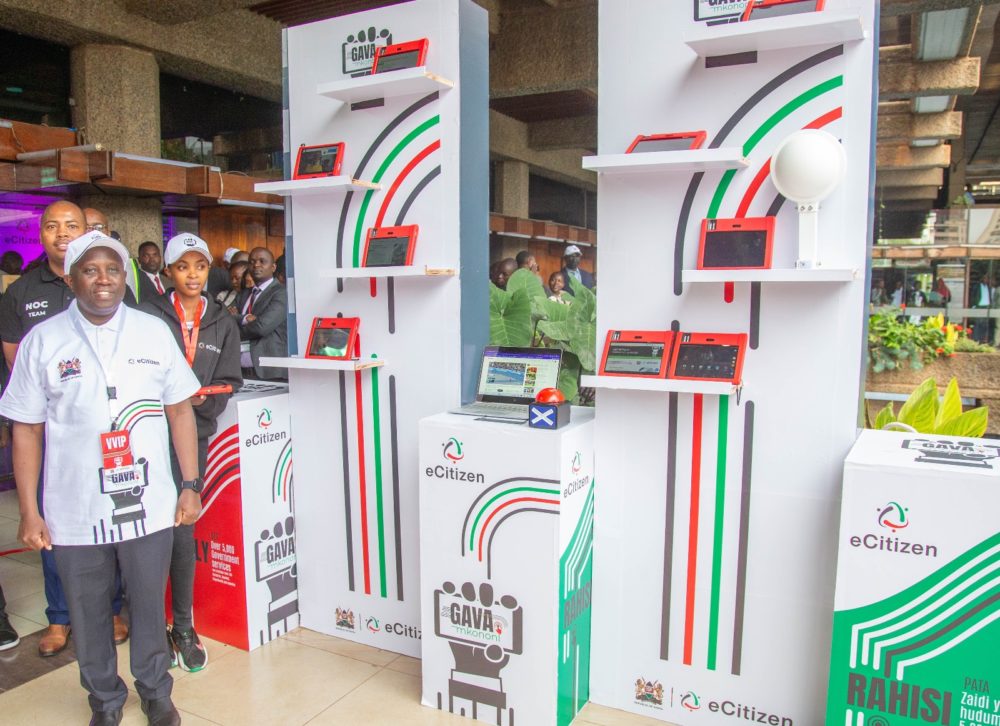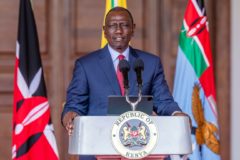The Kenyan government has launched the Gava Mkononi app, allowing access to over 5,000 services on smartphones. But what are these services?
Kenya has launched an app with over 5,000 government services. Referred to as the Gava Mkononi app, the service is an extension of the country’s eCitizen platform and part of President William Ruto’s programme to digitise government services. eCitizen is a digital platform that provides Kenyans access to government services and will be fully integrated into the Gava Mkononi app. Gava Mkononi has also been developed to integrate the Huduma Kenya Service Delivery Programme (HKSDP) functions, a network of service centres that provide access to various public services and eCitizen.
According to a statement by the ICT Authority, a state department under the Ministry of ICT and Digital Economy, “Gava Mkononi is a Swahili word that means ‘government in the palm of your hands’, meaning that anyone in the world can access all Kenyan government services by using any device, may it be a mobile phone or a tablet. This is why the e-citizen mobile app was named ‘Gava Mkononi’. Making e-citizen a mobile app was a way to simplify accessibility and allow people to download and install the app or via the web.”
Does the Kenyan government provide up to 5,000 services?
Kenyans have been eagerly awaiting a breakdown of the over 5,000 government services now available on the app and the eCitizen website. At the start of 2023, there were fewer than 400 services on the portal, with driving licence renewal being the most sought-after service, after business registration and police clearance certificates.
The ICT Authority told TechCabal that there are over 5,000 services available through various agencies, which can be accessed via the eCitizen portal or the new app, Gava Mkononi—take, for instance, the Ministry of Foreign Affairs, which offers around 560 services. With over 30 agencies, each with its services, the cumulative count reaches beyond 5,000. The Export Processing Zones Authority offers services such as registration, renewal, and accreditation of training instructions licences. The National Assembly provides services related to public participation, public petition, regular reports, filing petitions, business schedules, bills, internship applications, visit applications, e-newsletters, Hansard reports, study visits, next sitting information, order papers, votes, and proceedings, legislative proposal tracking, bill tracking, motion tracking, statutory instruments tracking, statements tracking, petitions tracking, and questions tracking. The Registrar of Political Parties handles services concerning political party membership status, registration, and resignation.
Additional access channels
As of March 2023, there were over 29.4 million Kenyans with smartphones, while the number of feature phones stood at 33.4 million. These figures indicate that feature phones are still widely used in Kenya, so Gava Mkononi will also be accessible via USSD using the code *2222#.
In addition to the USSD code and smartphone app, Gava Mkononi can be accessed through an extensive mobile money agency network, including Safaricom’s M-Pesa, as well as bank agencies such as KCB with 28,000 shops, Equity Bank with over 40,000 shops, and Cooperative Bank with over 22,000 shops. President Ruto stated, “Gava Mkononi will be available in more than 250,000 M-Pesa shops, 28,000 KCB shops, 40,000 Equity shops, and 22,000 Cooperative Bank shops to serve those without smartphones.” Moreover, citizens can access eCitizen through the web and have the option to visit Huduma Centres, where the HKSDP services are provided physically.
Plans for the platform
The state plans to digitise identification cards for citizens in the future, a feature that will also be available on the app and the eCitizen portal. According to the ICT Authority, Kenyans will no longer need to carry a physical card when the project is completed. For now, there are no launch dates, but the idea of new digital IDs has been mentioned before by cabinet secretary Eliud Owalo.
There are plans to stop physical visits to the Huduma Centres entirely; Kenyans will only have to physically visit the centres for services such as ID card replacements.





















